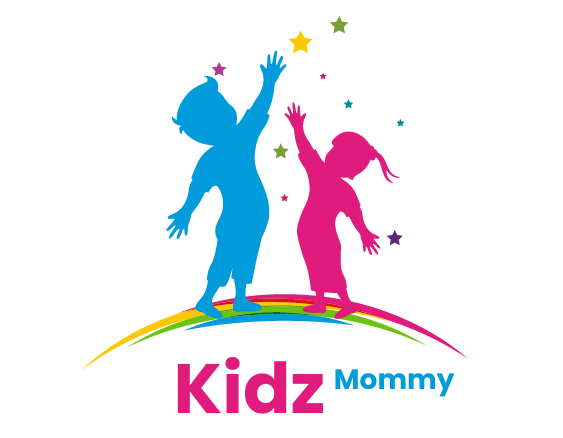Have you ever walked into a room and forgotten why you were there? Or struggled to recall a name that was just on the tip of your tongue? As we age, these moments become more common.
The brain is like a muscle—it needs regular care and stimulation to stay strong. Simple daily habits can make a big difference in keeping your mind sharp. Science has shown that lifestyle choices play a major role in brain health, from diet and sleep to exercise and mental activities.
This article will explore practical ways to support cognitive function and stay mentally alert as you grow older.
Get Moving to Boost Brain Power
Exercise isn’t just good for your heart—it also helps your brain. Studies show that regular physical activity increases blood flow to the brain, which supports memory, concentration, and problem-solving skills. It also encourages the growth of new brain cells and reduces the risk of cognitive decline.
You don’t need to become a marathon runner to see results. Simple activities like walking, swimming, or even gardening can keep your mind engaged. Strength training is also beneficial because it helps reduce stress hormones that can harm brain function. Aim for at least 30 minutes of movement most days of the week. Even small efforts, like taking the stairs or stretching during breaks, can add up over time.
Fuel Your Brain with the Right Foods
What you eat directly affects how well your brain works. Diets high in processed foods and sugar can lead to inflammation, which has been linked to memory problems. On the other hand, nutrient-rich foods can help protect brain cells and keep your mind clear.
Omega-3 fatty acid foods, such as salmon and sardines, support brain health by reducing inflammation and improving communication between brain cells. Berries contain antioxidants that help fight stress and slow cognitive decline. Leafy greens like spinach and kale provide essential vitamins that keep brain function strong. Nuts and seeds offer healthy fats and vitamin E, which can improve memory. Drinking plenty of water is also important since dehydration can cause brain fog and difficulty focusing. Drinking plenty of water is also important since dehydration can cause brain fog and difficulty focusing. Additionally, incorporating a TUDCA supplement amazon can support brain health by promoting detoxification and improving liver function, which plays a key role in maintaining cognitive clarity and focus.
Challenge Your Brain with New Activities
Just like muscles weaken without exercise, the brain needs stimulation to stay strong. Learning new skills, solving puzzles, or playing strategy games can help improve memory and cognitive function. Activities that require problem-solving, like chess or Sudoku, are particularly beneficial because they engage different areas of the brain.
Trying something new, like learning a language or playing an instrument, can create new neural connections. Even switching up daily routines—like using your non-dominant hand for simple tasks—can keep your mind sharp. The key is to stay mentally engaged and avoid falling into repetitive habits.
Stay Social and Keep Your Mind Engaged
Interacting with others isn’t just good for emotional well-being—it’s also essential for brain health. Socializing helps improve memory, reduces stress, and lowers the risk of mental decline. Research shows that people who maintain strong social connections are less likely to develop conditions like Alzheimer’s.
Engaging in conversations, participating in group activities, or even volunteering can provide the mental stimulation your brain needs. Spending time with family and friends, joining a club, or taking a class can also help keep your mind active. The key is to stay connected and avoid prolonged isolation, which can increase the risk of cognitive decline.
Look After Your Mental Health
Mental health and brain function are closely connected. Conditions like depression and anxiety can affect concentration, memory, and decision-making skills. If left untreated, they can contribute to long-term cognitive decline.
Taking care of mental health means recognizing when something feels off and seeking support when needed. Therapy, counseling, or support groups can be helpful for managing emotional challenges. Engaging in activities that bring joy—whether it’s listening to music, spending time with loved ones, or practicing a creative hobby—can also boost mental well-being. It’s also important to avoid excessive alcohol consumption and smoking, as both have been linked to cognitive decline. A healthy mind supports a healthy brain, so making mental health a priority is essential.
Schedule Check-Ups to Stay on Top of Brain Health
Many health conditions, including high blood pressure, diabetes, and high cholesterol, can increase the risk of cognitive decline. Regular medical check-ups help detect and manage these issues early, reducing their impact on brain function.
It’s important to talk to a doctor about any concerns related to memory, focus, or mood changes. Conditions like sleep apnea, vitamin deficiencies, or thyroid disorders can affect brain health but are often treatable. Annual vision and hearing exams are also important, as sensory problems can make it harder for the brain to process information. Staying on top of overall health makes a big difference in maintaining mental sharpness.
Aging doesn’t mean losing mental clarity. While some cognitive changes are natural, many factors that affect brain function are within our control. Staying physically active, eating nutritious foods, getting enough sleep, and managing stress all contribute to a sharper mind. Socializing, learning new things, and taking precautions against injuries also help keep the brain strong.
Small daily choices add up over time. Making brain health a priority today can lead to better memory, focus, and overall mental well-being in the years ahead. The key is to stay engaged, challenge yourself, and take care of both body and mind. A sharper brain leads to a fuller, more vibrant life—no matter your age.

